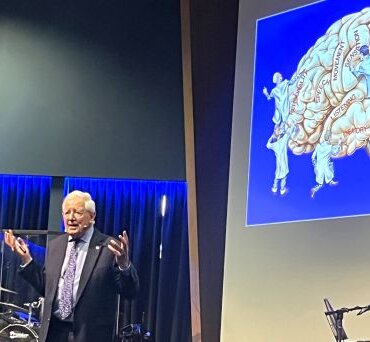
Richard Faull speaking in Cambridge on the marvels of the human brain. Photo: Viv Posselt
One of New Zealand’s leading brain research scientists, Sir Richard Faull, told a Cambridge audience last week that he was ‘over the moon’ at news of a breakthrough in the treatment of Huntington’s disease.
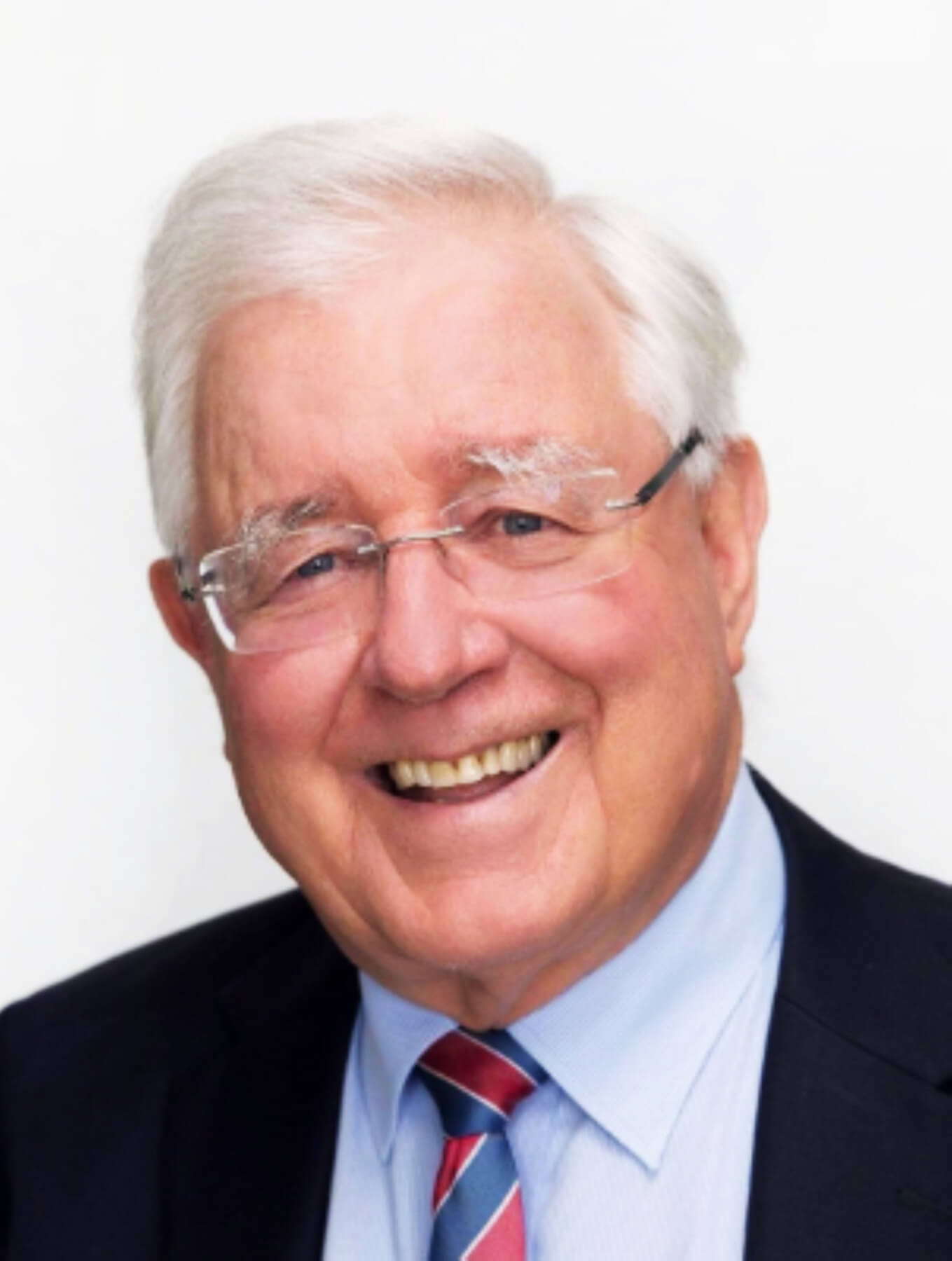
Richard Faull
Speaking to over 300 Cambridge U3A members, he said news that international researchers had discovered a new gene therapy that slows the disease’s progress by 75 per cent was ‘a dream come true’.
“The fact that it is working is incredible. This provides scientific hope for the future, not only for Huntington’s but also for other brain diseases caused by genes.”
One in three New Zealanders suffer from brain diseases such as Alzheimer’s, dementia, Huntington’s, Parkinson’s, epilepsy, multiple sclerosis, motor neuron diseases, or damage from stroke and cancer. Brain health can be boosted by good diet, cognitive and physical activity, social interaction and looking after heart health, he said.
Huntington’s disease is caused by the mutation of a gene in our DNA – the huntingtin gene – which turns a normal protein in the brain into a killer of neurons. If one parent has Huntington’s disease, there is a 50 per cent chance their child will inherit the altered gene and develop the disease, which resembles a combination of dementia, Parkinson’s and motor neurone disease.
The new treatment announced globally last week sees the surgical introduction into the brain of an altered safe virus that delivers a new piece of DNA to brain cells. This in turn intercepts and disables the mutant gene.
The therapy is a long way from approval – experts predict a date around mid-2027. Even then, treatment will be for those in the early stage of Huntington’s with delivery of the therapy limited to specialist surgical centres.
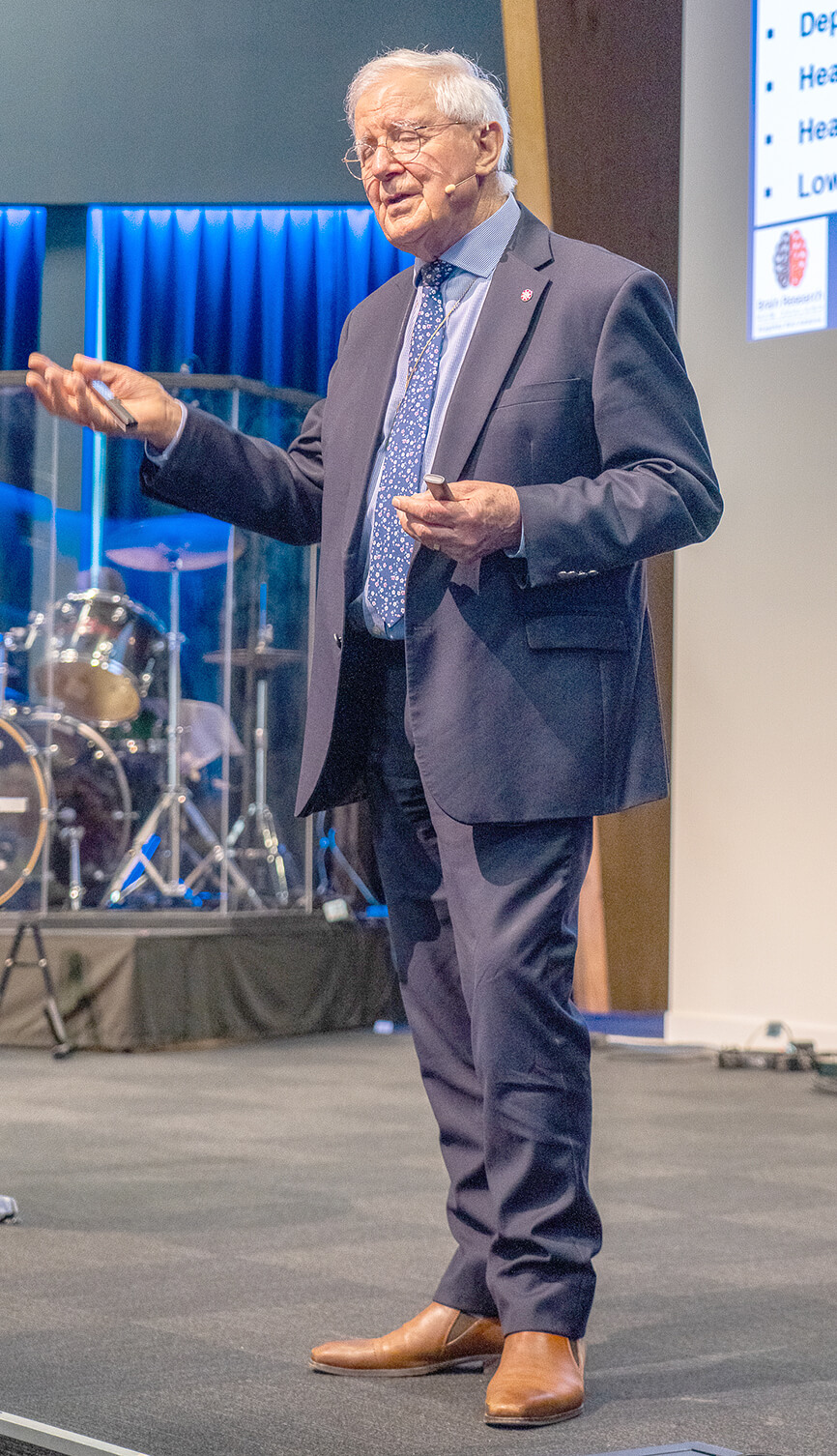
Richard Faull speaking in Cambridge on the marvels of the human brain.
Faull was talking to Cambridge U3A on the challenges of Alzheimer’s and the ageing brain. He is founder and director of the Neurological Foundation Human Brain Bank, Distinguished Professor of Anatomy, and director of the Centre for Brain Research, at the University of Auckland.
Transfixed by the human brain from his early days as a medical student, Faull described it as a marvellously complex organ that makes us who we are, gives us our conscious existence, our senses, intelligence, and personality.
He outlined the way it works, how growth and expansion was made possible by folds on its surface, how the left side affects the right and vice versa, and how its weight (usually around 1.5kg) correlates to body size. There are some 90 billion brain cells in your head, about 10 times the number of people on earth; all continuously communicating.
“They connect to each other all the time … it’s like the United Nations, one that works well. They don’t go and create a big hoo-ha.”
Faull grew up as one of five sons raised on a Taranaki farm. His parents’ advice to all, to ‘go out and help the people’, has remained with him. He said the work being done by international researchers on brain diseases – in which Kiwi scientists play a significant part – validates the work he has done and honours the families who have donated their relatives’ brains for research.
He has worked closely with Kiwi geneticist Professor Russell Snell, whose talk to Cambridge U3A last October on Alzheimer’s and Huntington’s diseases was covered by The News. Their work was instrumental in demonstrating that the human brain can make new brain cells – something previously considered impossible.
Brain health depends on heart health, he said, as with each heartbeat, some 20 to 25 per cent of blood does directly to the brain.
Part of the miracle of the brain was its ability to override certain conditions and retrain itself. He cited stroke victims who may lose their speech ability only to regain it through singing.
See: Work on genes holds hope for neuro diseases
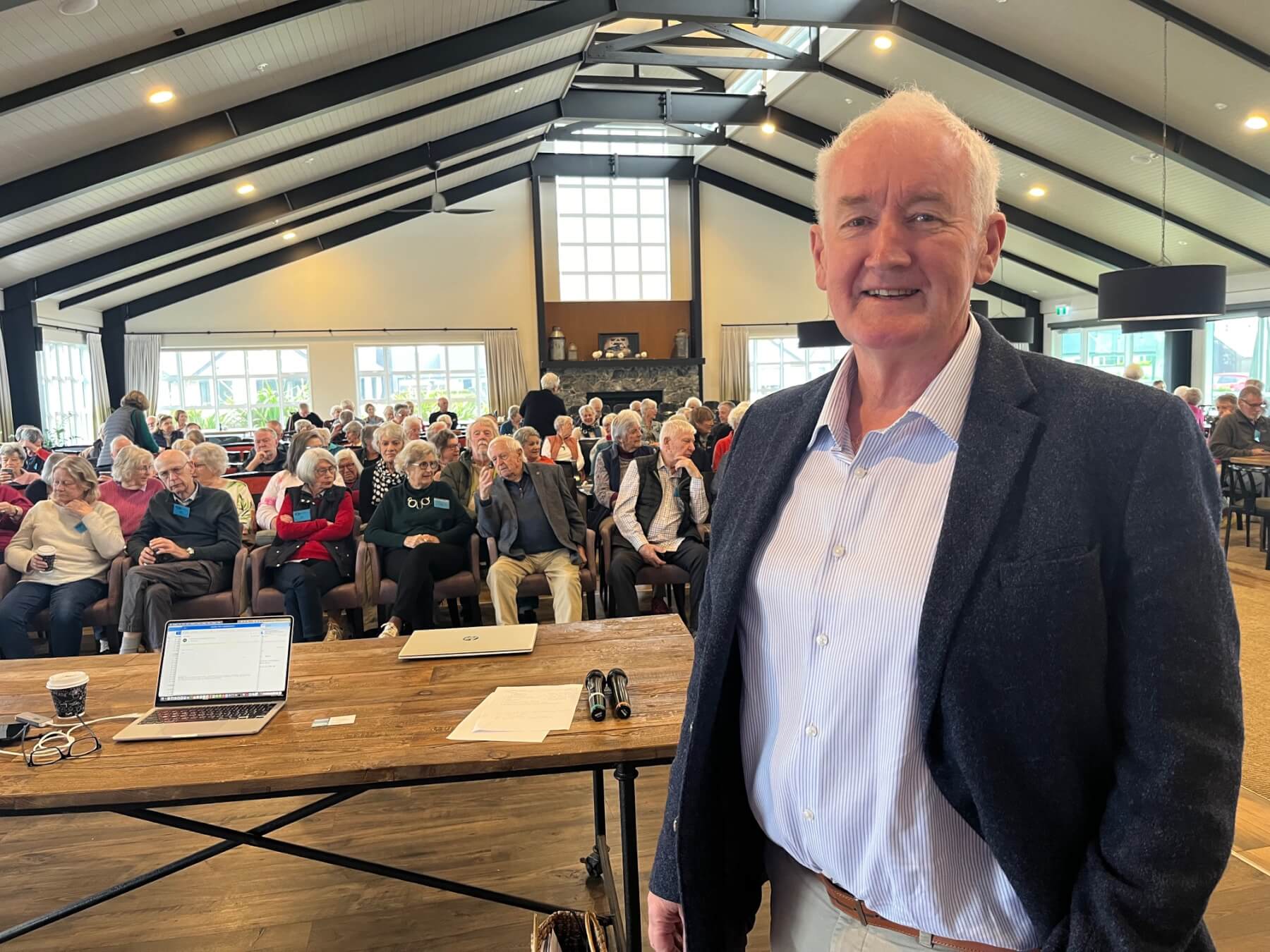
Russell Snell
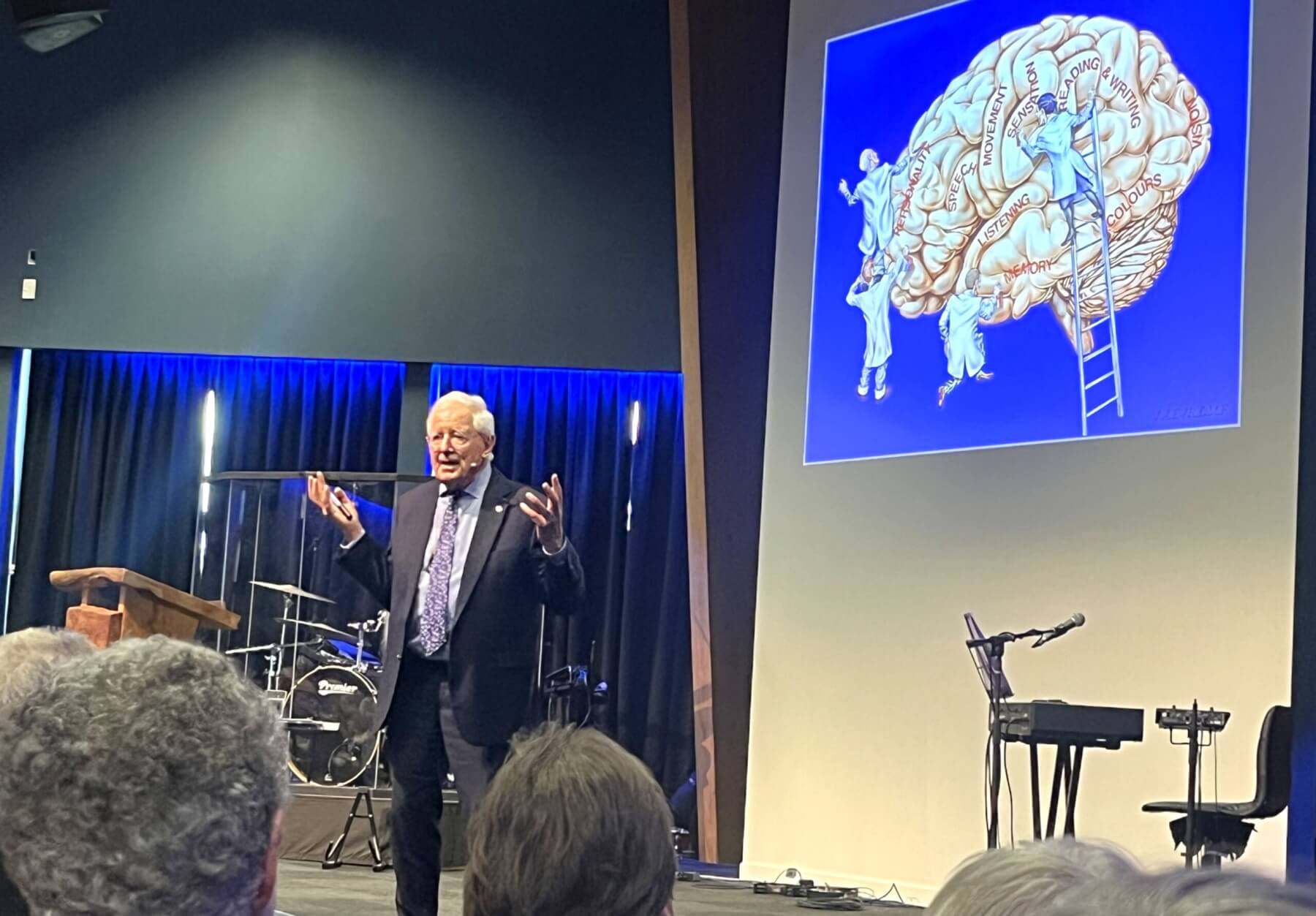
Richard Faull speaking in Cambridge on the marvels of the human brain. Photo: Viv Posselt








